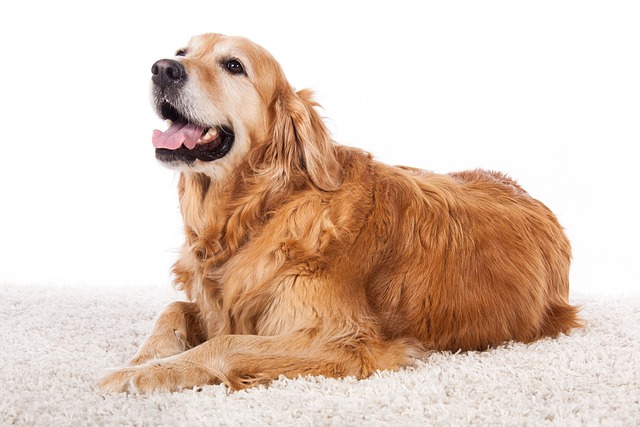
How can I tell if my dog's heatstroke is serious
Let’s be real: It’s a sticky August morning in Los Angeles, and you took your 2-year-old Golden Retriever, Max, for a walk a little later than usual
Feeding a Golden Retriever isn’t just about filling a bowl—it’s about fueling that boundless energy and maintaining that glorious golden coat. These lovable, active dogs have specific nutritional needs, and finding the right food can feel like cracking a code. But don’t worry—with a little know - how, you can keep your furry friend thriving.
First off, protein is king for Goldens. They’re athletic dogs, and their muscles need top - notch fuel. Look for high - quality animal proteins like chicken, beef, or fish as the first ingredient on the food label. Avoid products that list vague terms like “meat by - products,” as these can be of lower quality. And remember, many regions have strict regulations on pet food labeling, so accurate ingredient lists aren’t just a courtesy—they’re the law.
Carbohydrates play an important role too. Goldens need complex carbs like brown rice, sweet potatoes, and oats to power their long walks and play sessions. These slow - releasing energy sources keep them going throughout the day. Just be cautious of foods with excessive fillers or artificial additives, which some local animal welfare organizations warn can cause digestive issues.
Fats are another essential component, especially for that shiny coat Goldens are known for. Omega - 3 and Omega - 6 fatty acids, often found in fish oil and flaxseed, work wonders. They don’t just make your dog’s fur look great; they also support healthy skin and can even boost cognitive function. When shopping for food, check the fat content—too much or too little can lead to problems.
 Age matters a lot when it comes to feeding Goldens. Puppies need a food formulated for growth, with higher levels of protein and calcium to support bone development. But be careful not to overfeed them, as rapid growth can contribute to joint problems down the line, which many vets and local pet health guidelines emphasize. Adult Goldens, on the other hand, require a balanced diet to maintain their weight and energy levels.
Age matters a lot when it comes to feeding Goldens. Puppies need a food formulated for growth, with higher levels of protein and calcium to support bone development. But be careful not to overfeed them, as rapid growth can contribute to joint problems down the line, which many vets and local pet health guidelines emphasize. Adult Goldens, on the other hand, require a balanced diet to maintain their weight and energy levels.
If your Golden has any health issues, such as food allergies or sensitive stomachs, special diets may be necessary. Some dogs are allergic to common ingredients like wheat or soy. In such cases, look for hypoallergenic or limited - ingredient foods. And always consult your vet before making any major diet changes—neglecting your pet’s health needs not only risks their well - being but can also violate local animal care regulations.
Don’t forget about portion control. Goldens love to eat, and it’s easy to overdo it. Follow the feeding guidelines on the food package, but also adjust based on your dog’s activity level. If your Golden is less active, you may need to reduce the amount to prevent weight gain. Many communities offer pet nutrition resources, and some even have weight management programs to help keep your dog in shape.
Treats are a fun part of bonding with your Golden, but they should be given in moderation. Choose healthy options like freeze - dried meat or fruit - based treats. And make sure any treats you give comply with local pet product safety standards.
Finding the best food for your Golden Retriever is a journey of trial and error, mixed with a dash of research and lots of love. By paying attention to their nutritional needs, following local regulations, and working with your vet, you can ensure your loyal companion stays happy, healthy, and ready for all those adventures ahead.

Let’s be real: It’s a sticky August morning in Los Angeles, and you took your 2-year-old Golden Retriever, Max, for a walk a little later than usual

You're enjoying a summer afternoon at the park when you notice your dog has stopped panting and appears disoriented - their gums are bright red

Let’s paint the picture: You’re in your Denver apartment, watching your 4-year-old Boston Terrier, Ruby, plop down mid-play session with her favorite toy

Many dog owners notice their pets nails seem shorter after regular walks,but how much does this daily activity actually help?The answer depends on where you walk—concrete sidewalks or asphalt streets gently file nails as a dog's paws hit the ground

Most dog owners notice their pup scooting across the carpet at some point, but few connect it to impacted anal glands. These small sacs near a dog’s rectum secrete a scent for marking territory

Most vets agree that regular dog teeth cleaning is key to avoiding painful dental issues later. For healthy adult dogs, a professional cleaning at the vet’s office every 12 to 18 months usually works well.